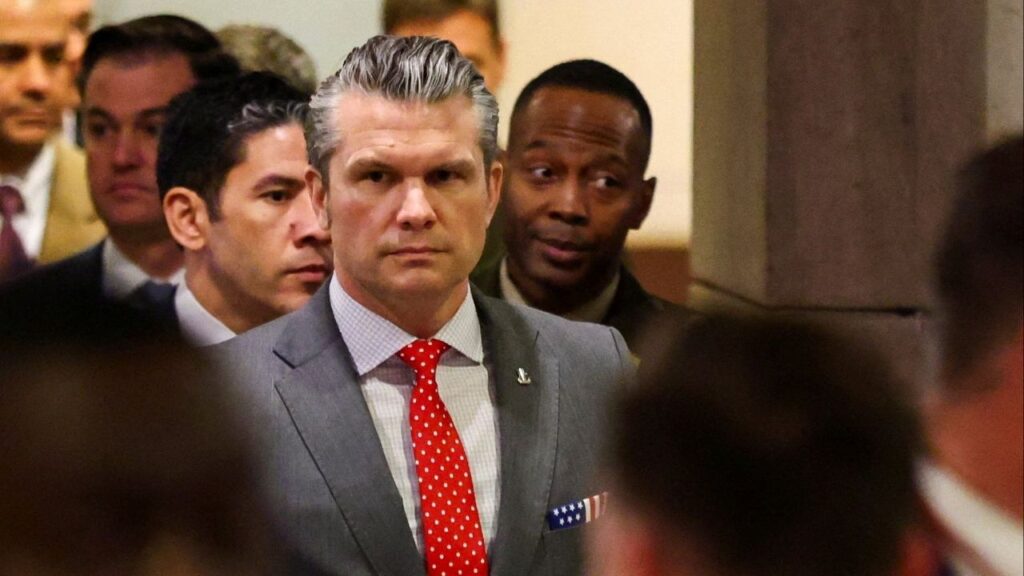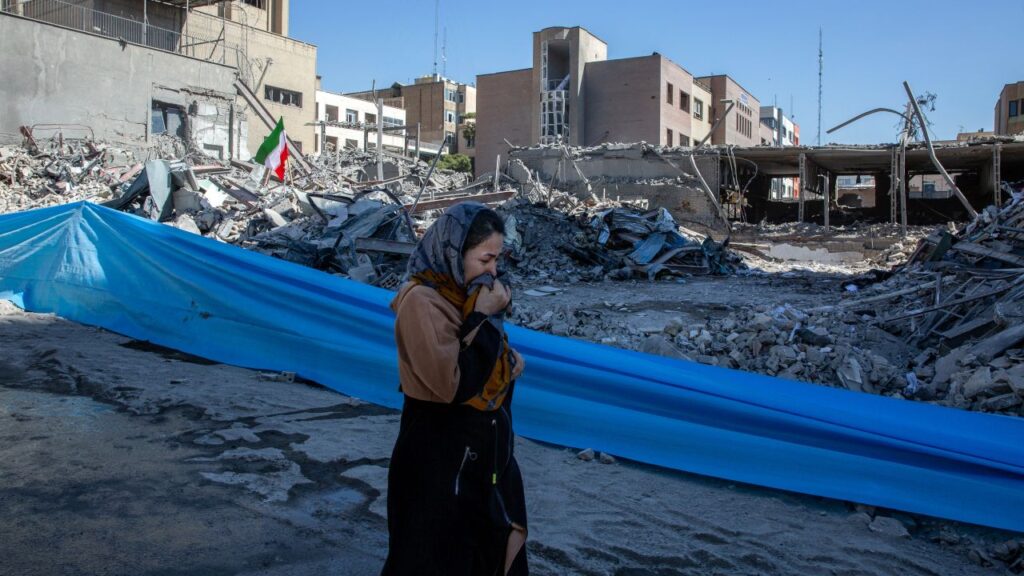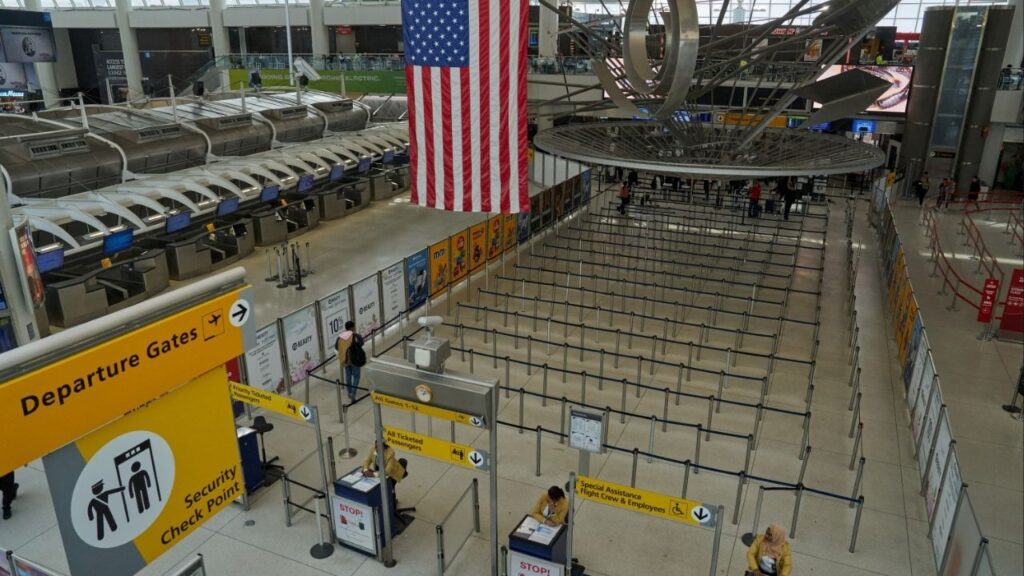Former President Donald Trump reaches to touch his ear as he speaks at a campaign rally in Butler, Pa., on Saturday, July, 13, 2024. Trump has agreed to be interviewed by the FBI as part of its investigation into the motives of the 20-year-old gunman, bureau officials said on July 29. (Doug Mills/The New York Times)

- A bipartisan congressional task force has been created to investigate the attempted assassination of former President Donald Trump.
- The task force consists mostly of lawmakers with significant military or law enforcement experience, including both Republicans and Democrats.
- The committee aims to perform its duties in a nonpartisan manner, focusing on finding facts and ensuring accountability.
Share
|
Getting your Trinity Audio player ready...
|
WASHINGTON — House leaders on Monday appointed 13 lawmakers to serve on a newly formed bipartisan congressional task force to investigate the attempted assassination of former President Donald Trump, choosing mostly members with significant military or law enforcement experience.
Rep. Mike Kelly Names Panel Chair
Rep. Mike Kelly, R-Pa., who represents the district where the shooting took place while Trump spoke at a campaign rally, was named the panel’s chair. The top Democrat on the task force will be Rep. Jason Crow of Colorado, a former Army Ranger.
Related Story: Trump Agrees to Be Interviewed as Part of an Investigation Into His ...
“We have the utmost confidence in this bipartisan group of steady, highly qualified, and capable members of Congress to move quickly to find the facts, ensure accountability, and help make certain such failures never happen again,” Speaker Mike Johnson and Rep. Hakeem Jeffries, the minority leader, said in a joint statement.
In private conversations between the two leaders, Jeffries emphasized the need to appoint serious members to the panel, a proposition with which Johnson agreed, according to two people with knowledge of the discussions. Johnson also emphasized that the task force, which was formally created by a congressional act that unanimously passed the House last week, should represent a cross section of views within the Republican Party.
Intense Lobbying for Committee Spots
Spots on the committee, which is seen as a high-profile assignment to close out the 118th Congress, were the subject of intense internal lobbying.
The appointment of one lawmaker, Rep. Clay Higgins, R-La., sparked criticism because of his history of endorsing conspiracy theories, including about the Jan. 6, 2021, attack on the Capitol. Higgins, a former U.S. Army staff sergeant and former law enforcement officer, has claimed that the FBI entrapped supporters of Trump into carrying out the riot, and that “ghost buses” took agents provocateurs to the Capitol to instigate the violence.
Higgins, who chairs a House subcommittee on border enforcement, also has claimed that the federal government is “staging a civil war” against Texas. And he called the criminal charges against Trump for mishandling classified documents a “perimeter probe from the oppressors.”
Related Story: Watch: Kamala Harris May Bring Out Trump’s Harshest Instincts
Republicans and Democrats on the Panel
Other Republicans on the panel include Rep. Mark Green of Tennessee, a former U.S. Army major and combat veteran who is chair of the Homeland Security Committee and led the drive to impeach Homeland Security Secretary Alejandro Mayorkas; Rep. David Joyce of Ohio, who leads a group of centrist Republicans and served as an attorney and county prosecutor for 25 years; Rep. Laurel Lee of Florida, a former judge and federal prosecutor; Rep. Michael Waltz of Florida, a former Green Beret; and Rep. Pat Fallon of Texas, a former Air Force officer.
For the Democrats, Jeffries selected Rep. Lou Correa of California, who recently traveled to Butler, Pennsylvania, with the Homeland Security Committee to visit the site of the assassination attempt; Rep. Madeleine Dean of Pennsylvania, one of the impeachment managers who investigated Trump over the Jan. 6 attack on the Capitol; Rep. Chrissy Houlahan of Pennsylvania, an Air Force veteran; Rep. Glenn Ivey of Maryland, a former federal prosecutor; and Rep. Jared Moskowitz of Florida, a former director of Florida’s Division of Emergency Management who has earned a reputation for verbal sparring on the Oversight Committee.
Committee to Perform in a Nonpartisan Way
In an interview, Ivey said the committee would try to perform its duties in a nonpartisan way.
“It’s important to have a nonpartisan effort,” he said. “We don’t have time for politics at all on this. We have a very short amount of time to get the investigation done.”
Ivey said he had worked with several of the Republicans on the panel in the past and believed they were “straight shooters and reasonable people.”
Related Story: House Republicans Slam Trump’s ‘Worst Choice’ for VP Pick JD ...
“It’s a core group I think we can work with in a reasonable way,” he said.
The task force, which was approved last week by a 416-0 vote on the House floor, will take the lead of an investigation being carried out by at least four different congressional panels.
The task force will have subpoena power and will attempt to answer myriad questions about what went wrong on the day of the attempted assassination of Trump. In the aftermath of the July 13 shooting, the director of the Secret Service, Kimberly A. Cheatle, resigned.
–
This article originally appeared in The New York Times.
By Luke Broadwater/Doug Mills
c.2024 The New York Times Company




















